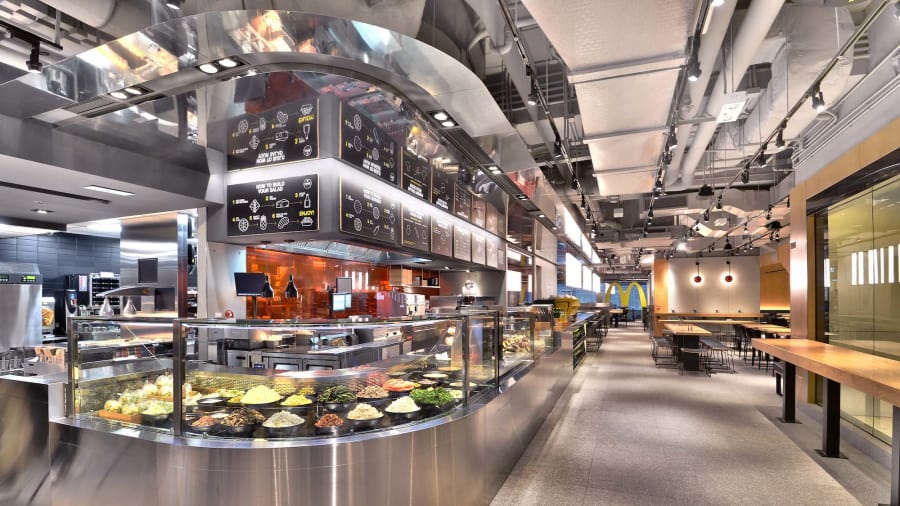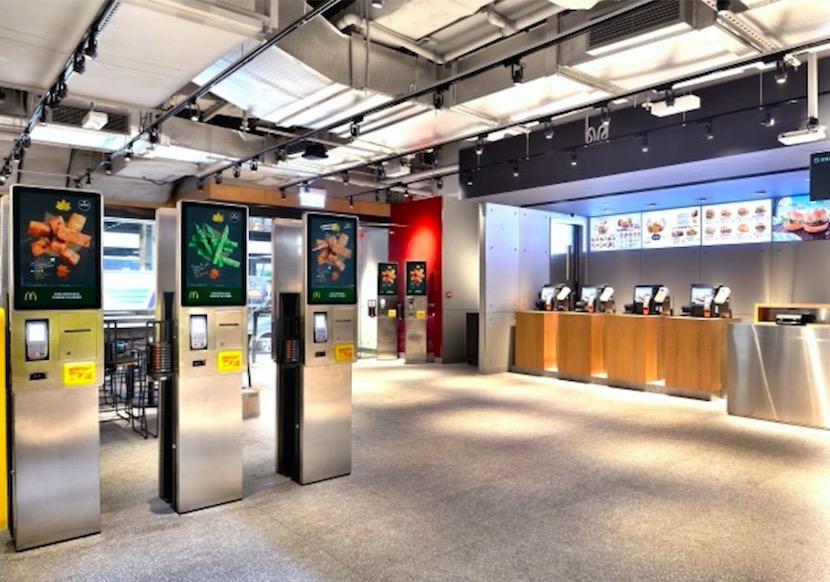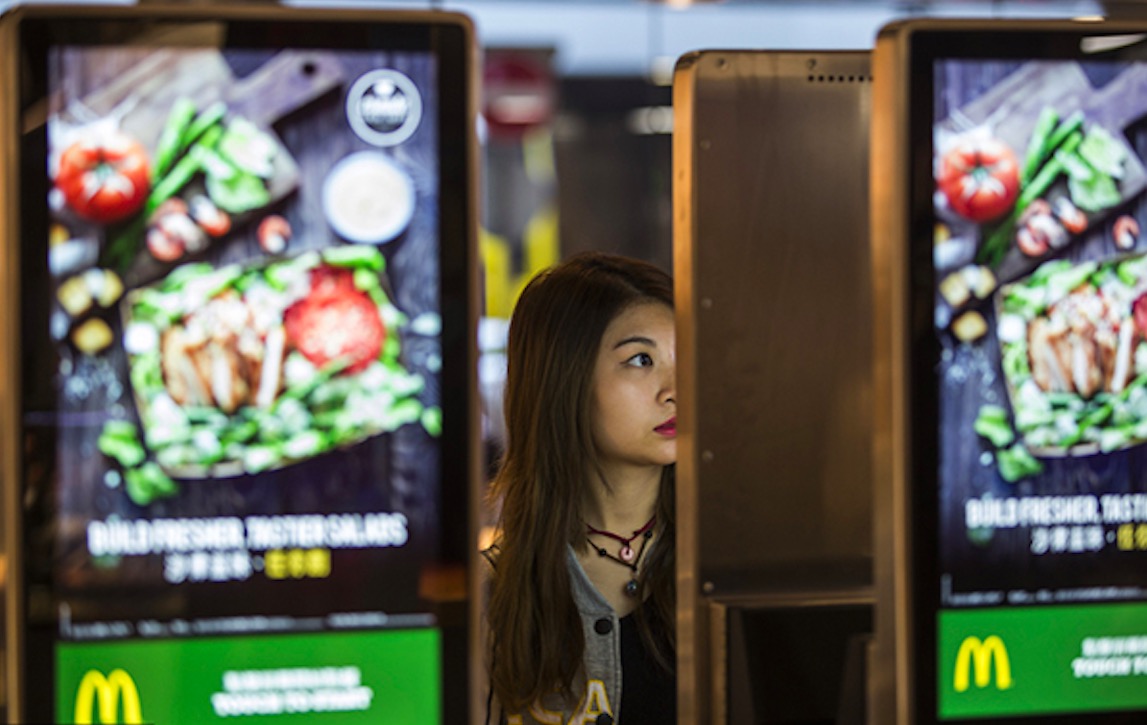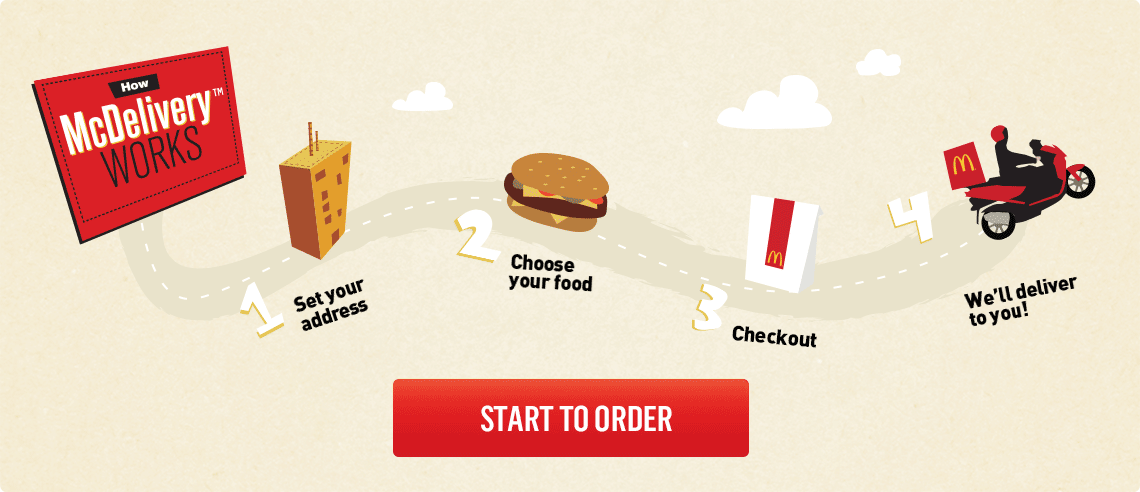Hong Kong Fast Food Giant, McDonald's, Believes They Must "Continually Innovate for Growth"
How can restaurants profit by learning from McDonald's Hong Kong's business model?

Contents
The History of McDonald's in Hong Kong
Hong Kong's first McDonald's opened up in Causeway Bay in 1975. Since then, McDonald's has expanded rapidly and is now Hong Kong's largest and most widespread fast food chain. On a daily basis in Hong Kong, McDonald's' over 15,000 employees and more than 240 restaurants serve over a million customers. Despite McDonald's speedy growth in Asia's World City, the company is keen to maintain its status at the top of Hong Kong's fast food industry. To do this, they are constantly seeking out new ways to improve convenience for customers and to keep abreast of modern trends. Indeed, the McDonald's of the past would be almost unrecognizable to what modern McDonald's restaurants look like. One of the more notable changes is that modern-day McDonald's has a much more high-tech, contemporary look.

Why Adopt New Tech if the Business is Already Successful?
For many, it might seem strange that such a dominant force in Hong Kong's fast food industry would seek to change their business model and back a new, tech-based approach. However, according to Vice President and Chief Financial officer of McDonald's Hong Kong, Keith Chan, each digital change was driven by the aim of securing future growth. By looking toward the future, McDonald's is likely to be ahead of the pack when it comes to reaping the benefits of incorporating technology into their business. Chan believes that the rapid changes the world is seeing requires McDonald's to "continuously innovate for growth."
This proactive approach is not solely-focused on making McDonald's restaurants more efficient. In addition, Chan believes that by opting to incorporate more technology into business operations, McDonald's CFOs and financial controllers should aim to make use of these technologies as part of their work to create value.
Below, we examine some of the new technologies McDonald's Hong Kong is now using and take a look at how each one creates value for both, the business and the customer.

Self-Service Kiosks
One of the most notable changes that modern Hong Kong McDonald's has incorporated into its operating style is the presence of self-service kiosks. The implementation of kiosks was done to facilitate younger, tech-savvy customers. Not only is there a growing number of people who are now willing and capable of using newer tech, but it also holds several key benefits. Chan said that the new self-service kiosks allow patrons to order food, customize their orders to their liking and save time by skipping queues. Those who are less-familiar with using new technology like self-service kiosks are also being catered to and taught how to take advantage of this new tech. Chan revealed that McDonald's has digital ambassadors near the kiosks to help anybody to order food. Here we can see that customers are now able to personalize their McDonald's experience, which creates more perceived value.
Despite the benefits, Chan acknowledged that each of these self-service kiosks required a large amount of investment. On top of that, Chan added, we also had to restructure each restaurant to accommodate them and ensure they would not only be convenient, but easy for customers to use.

Mobile App
In addition to self-service kiosks, McDonald's has also integrated other forms of technology to make the ordering experience as convenient as possible for customers. For example, in 2018, the company launched their mobile app: "McDonald's Hong Kong. The mobile app is designed to allow customers to place orders remotely and from the comfort of their own homes. From there, customers may choose to "have their orders marked for pick-up at our restaurants or have it delivered to their homes," according to Chan. When explaining the benefits of having a mobile app, Chan elaborated, "People can simply order before heading to a McDonald's restaurant, check in when they arrive and then pick up their food." This efficient mobile app system not only saves valuable time for walk-in customers, but also ensures that customers who prefer to stay home can still order delivery.

Cashless payment Integration
To add an additional layer of convenience to the new technologies being implemented into McDonald's restaurants, the fast food giant is also integrating with multiple forms of cashless payment. Since such a large number of Hong Kongers now carry some form of cashless payment or another, it is more important than ever before to allow those customers to have payment flexibility. When speaking about cashless payments, Chan said, "Right now, we have over 10 different cashless channels in our stores." He further explained why they had been implemented, saying, "these digital transformation initiatives are all about providing our customers with convenience and making sure they are satisfied." This move by McDonald's Hong Kong is certainly a valid one as JP Morgan states, digital wallets are the second most popular payment option in Hong Kong. JP Morgan also reveals that many Hong Kongers prefer digital and cashless payments because of the rewards they receive. For example, credit cards may offer air miles and eWallets may offer coupons to customers.

Data, Analytics and Actionable Insights
Owning and implementing new technology is certainly the way forward, but measuring results through data and analytics is extremely important for any F&B business. Because of this, McDonald's also uses data visualization tools to look at data generated from each digital and mobile food purchase. This type of information can shed light on how many customers make use of the new technology and whether McDonald's' investments are paying off. Regarding data and analytics technology, Chan said, "Now, we have more data on what our customers order most. We also have data visualization tools for our management to see real-time data on sales, products, gross profit margins and labour percentage costs. These all create actionable insights." Using these insights, McDonald's Hong Kong can tweak and change how they use technology to coincide with customers' usage patterns while also staying abreast of developing customer purchasing trends.

Has the New Technology Paid Off?
To put it simply, yes. With regards to the new technology that McDonald's has implemented, Chan pointed out that cashless orders and orders made through the self-service kiosks and app account for more than 40 percent of their sales. Chan further said that, "It's clear that people find these new methods efficient." Learning from this, it is imperative that other Hong Kong F&B companies begin introducing more technology into their businesses. Even something as basic as implementing a modern POS system can offer massive benefits. As Hong Kong evolves, it is always better to stay ahead of the curve rather than to lag behind and let competitors make the first move.